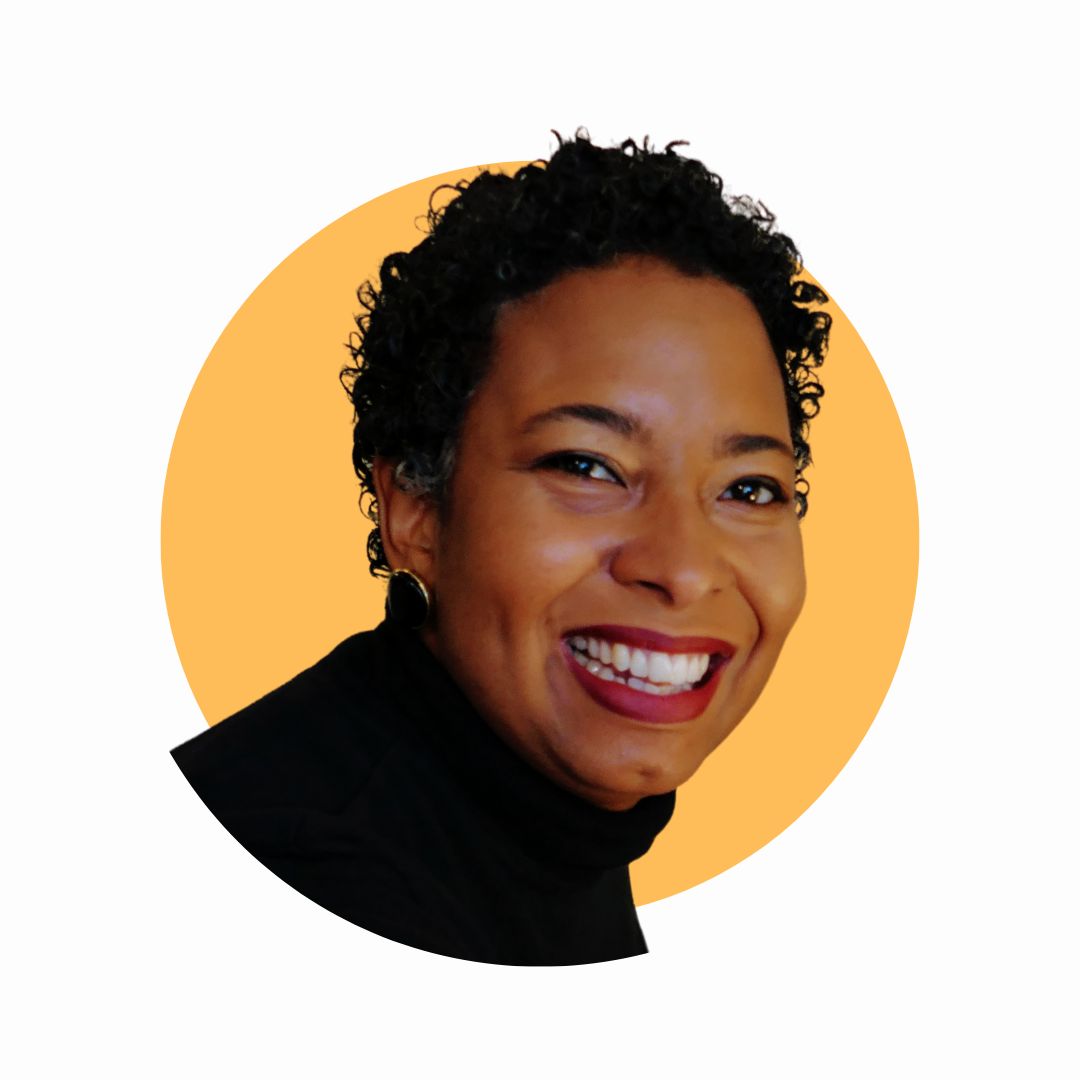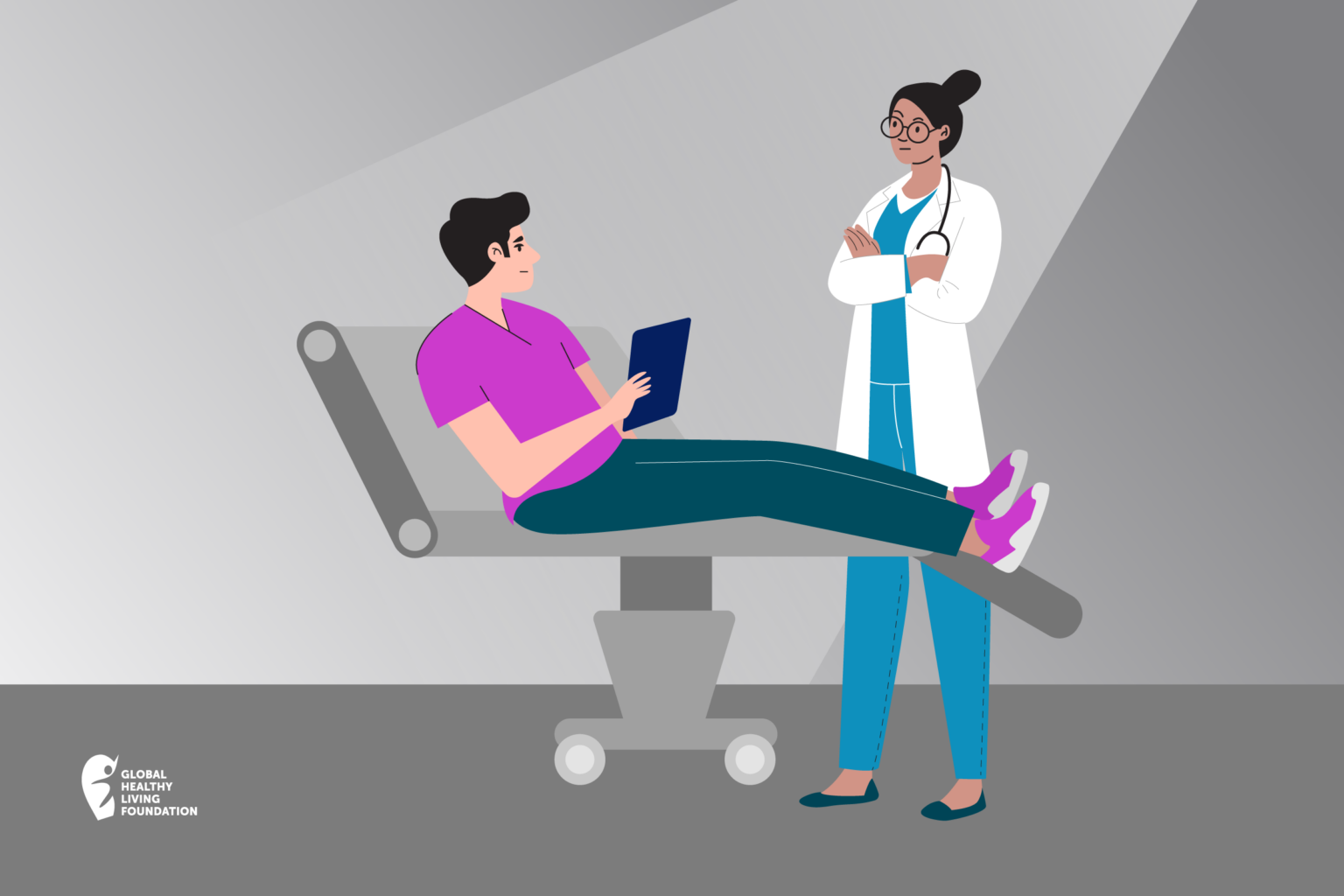"I am holding the trashcan on my lap when Chaka Khan starts to sing about female empowerment. I think: “
Sorry, Chaka, but it is not all in me today.”
Guiding Lights: Beacons for Better Health
Guiding Lights: Beacons for Better Health
The Global Healthy Living Foundation is proud to present our new program Guiding Lights: Beacons for Better Health, featuring patients advocates and health care providers who are helping to shine the way for others in the chronic illness community.
Shani Erdman
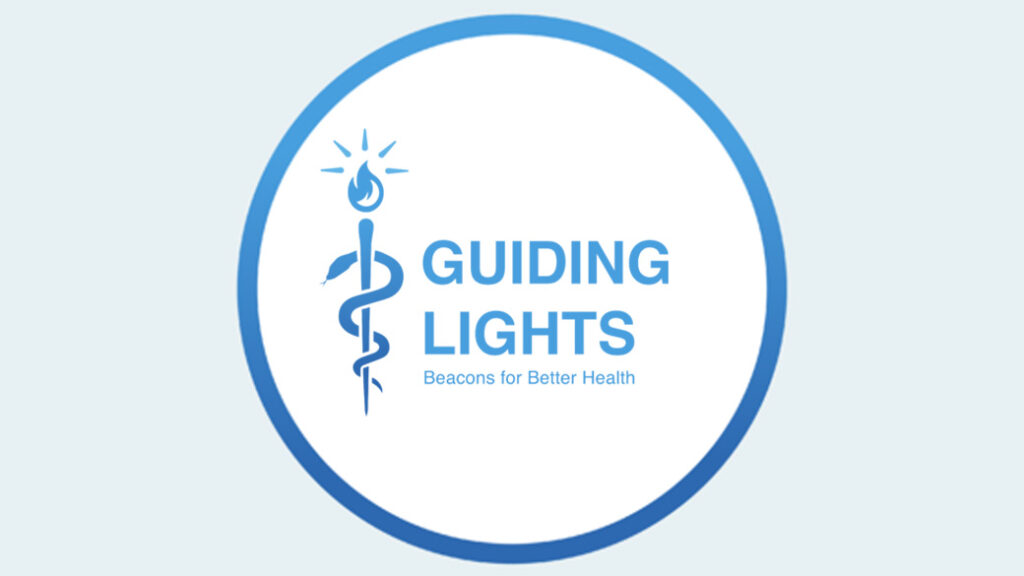
It’s natural that living with a chronic illness can cause patients to turn inward as they work to manage symptoms, treatment, and day-to-day life. And yet there are patients that while tending to their own health and well-being also transcend beyond themselves to guide others on their disease journeys, becoming patient advocates in the process. These individuals, as well as many of the health care providers who treat them, are beacons who shine a way forward for others, often in times of darkness.
Below you’ll meet some of our “beacons.” They are patient advocates and health care providers from across the world who work with a wide variety of disease states. We hope you will find hope, guidance, and solace in hearing their stories and words of advice. Most of all, we — and our “beacons” — want you to walk away with this message: “You are not alone.”
Meet the Patients
Rosemary Ainley: “Find your community”
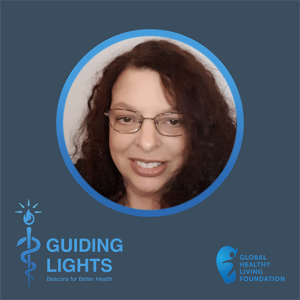
Rosemary Ainley, 52 years old, lives with rheumatoid arthritis, ankylosing spondylitis, fibromyalgia, type two diabetes, spinal stenosis, and spondylolisthesis in her lumbar spine. She is also an editor for CreakyJoints Australia.
What inspires you to advocate?
“I’m a leader of a support group in Australia called the Young Women’s Arthritis Support Group. I joined about 14 years ago and I’ve been leading it for about eight. And I absolutely love it, helping others in the same sort of position. What motivates me to help others is [that] I got help myself. I wanted to help others find that same experience of finding kindred spirits.”
What is one of your proudest advocacy moments?
“For me, my role as a volunteer with the arthritis support group and my role as a CreakyJoints editor are very much interrelated because they both come from me — from my heart. And I think my proudest moment is specifically when I see the moment of helping somebody else, and just see the sheer relief in their face. And sometimes, even crying in some of the groups, saying, ‘you understand, you understand me, thank you for understanding me.’ And it’s just brilliant.”
What advice do you have for people living with chronic illness?
“Find your community. Reach out to other people, and don’t be afraid to ask for help. Don’t be afraid to say you’re having a bad day, don’t be afraid to say you’re not coping, and [to] look for the support around you. It might not be your family and friends. It might not be your doctors. Go to your arthritis organizations or your local government organizations, or community health and find a peer support group somewhere. If you can’t find a physical one, look online, look on Facebook. And you know, there are all sorts of social media, and find someone who understands you and will listen to you. And believe me, we’re out there. So, yes, take that step. Reaching out is probably the most important thing.”
Michael Kuluva: “You can pursue your dreams with arthritis”
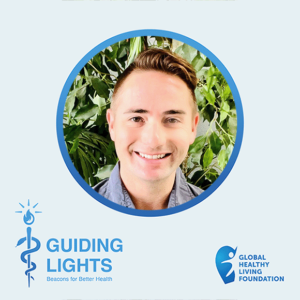
Michael Kuluva is a fashion designer living in LA. He has rheumatoid arthritis. During the last seven years, Michael has been doing fashion shows with GHLF to increase arthritis awareness.
What inspires you to advocate?
“With my fashion shows with GHLF and CreakyJoints, we’re able to elevate arthritis awareness and be able to have actual patients in the runway shows. There are not many male patients who have a voice in arthritis; I really want to have a voice within the arthritis community that people can resonate with.”
What is one of your proudest advocacy moments?
“My proudest moment would be that first fashion show that I did with CreakyJoints and coming out with my story. It was really an eye-opening experience of how amazing everybody is and how they really took the news and were able to be compassionate. I was so worried all those years about being kind of shunned out of the fashion industry at such a young age and not being able to regain my control and be able to live out my dreams. However, it just really pushed me forward and made me stronger.”
What advice do you have for people living with chronic illness?
“Arthritis is not a death sentence, and you can pursue your dreams with arthritis with amazing support. I want other men and guys and even juvenile arthritis patients to know that there are men who do have arthritis and that there are people just like them out there.”
Judy Nagy: “Together, we are stronger”
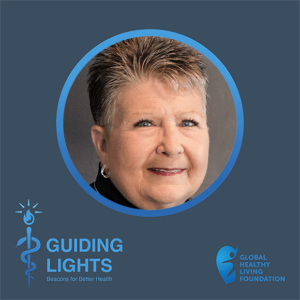
Judy Nagy, from Ohio, has been living with rheumatoid arthritis since she was 25, more than 40 years ago.
What inspires you to advocate?
“As a patient advocate, I truly believe that my experience can be helpful to others who are newly diagnosed or are having problems with flare-ups and medications that are no longer working. We are all in this together. And together, we are stronger. It’s important for me to be a patient advocate for people who need to talk with somebody and live a normal life as much as possible by learning from the experiences of others. The bond that we create together helps us get through this on a daily basis.”
What is one of your proudest advocacy moments?
“I have a guy in Pakistan who I talk to on a regular basis; now we’re friends. He couldn’t get his medicine, I hooked him up with Doctors Without Borders, and he got his medicine. I even told him to go to the U.S. Embassy there. I gave him all kinds of information. He got his medicine, and he’s doing great. I am so proud of this organization, the Global Healthy Living Foundation, its staff, its founders, and all the people who participate in the education and the connections that help us all live a better life.”
What advice do you have for people living with chronic illness?
“You are not in a bubble. We are all in this together and these are global problems that we’re dealing with. And we are so much bigger than our own lives and we need to reach out and share as much as we can so that we can all live better lives.”
Cristina Montoya: “Empower yourself with knowledge”
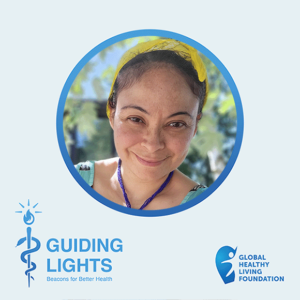
Cristina Montoya, who completed a degree in nutrition, lives with rheumatoid arthritis, Sjogren’s syndrome, and fibromyalgia.
What inspires you to advocate?
“I don’t want other patients to go through what I went through. If I can make their life a little bit easier and help them to maybe avoid a bumpy road, it’s a little bit smoother for them. I think that is my goal.”
What is one of your proudest advocacy moments?
“Last year, I decided to create a group program, so I got a few volunteers who had rheumatoid arthritis and I ran a five-week program where I talked about anti-inflammatory nutrition, healing your relationship with food, and setting realistic lifestyle goals. I answered questions about medical cannabis. And, also, I had a guest speaker talking about exercising with rheumatoid arthritis or inflammatory arthritis. So that made me so happy just to see that the participants were saying, Oh my God, this was so good. I learned so much.”
What advice do you have for people living with chronic illness?
“Living with chronic illness is a marathon, not a sprint. Even though you feel this body has been rough to you, you still have to live in this body and it’s sacred. The more you support your body and the more you reach out to your community, [the more] you learn about your disease. Empower yourself with knowledge and reach out to reliable resources. I will say that knowledge is power. And you are the one who knows your body best. If you go and see your rheumatologist or health care provider, make sure that your treatment goals are clear and there is a shared decision that is a two-way street. You are an active participant in your care.”
Ana Vieira: “Embrace your journey”
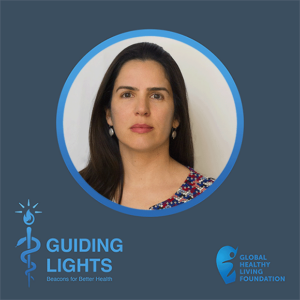
Ana Vieira, an international patient advocate and a member and volunteer of the Liga Portuguesa Contra as Doenças Reumáticas (Portuguese League Against Rheumatic Diseases), has lived with Sjogren’s syndrome for the last 15 years.
What inspires you to advocate?
“I advocate for myself by being involved in my own care. I try to empower myself and this is something that builds over the years. I advocate for others by trying to get involved in many different projects that I find out about that really can bring the patient perspective on this condition.”
What is one of your proudest advocacy moments?
“I think one of my proudest moments was founding Sjorgren Europe, which is a federation of national associations in Europe representing Sjogren’s patients. It’s a very young organization; we were set up in early 2019. We are still a baby learning to walk. But we’ve managed over these last three years and with the pandemic and so on, to shine a light on Sjogren’s in Europe. So maybe that’s my proudest moment so far.”
What advice do you have for people living with chronic illness?
“A peer support [group] is something unique. It’s a place where you can talk without taboos, without judgments, and you feel welcome. You feel heard, valued, and really supported. You are your own best care; you are your own best advocate. Baby steps to move you forward, embrace your journey. And take it day by day.”
Meet the Providers
Dr. Grace Wright: “Helping a person = helping a community”
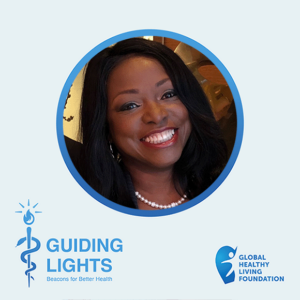
Grace C. Wright, MD, PhD, FACR, is a rheumatologist in private practice in New York City. She is Founder and President of the Association of Women in Rheumatology (AWIR).
What inspires you to advocate?
“My goal is to help people recapture the life that they had, even if we have to modify things, but to really be able to enjoy and live life to the fullest capacity that they have.”
What is one of your proudest provider moments?
“My proudest moments as a provider are when a family comes in and says, ‘thank you for helping my mother, daughter, sister, husband, spouse, friend,’ because now we have them back. That is the thing that just warms my heart because it means that not only did you help a person, you helped an entire community.”
What’s your best advice for patients?
“My best advice for patients worldwide is that you keep searching, you keep striving to become the best you that’s possible. You find the support that you need — whether it’s a health care provider, a friend, a family, nutritionist, or exercise person — but you find your team that’s going to help you become the you that you wish to become.”
Dr. Michael C. Schweitz: “There’s help out there”
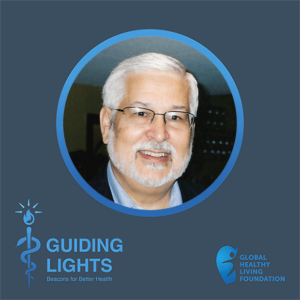
Michael C. Schweitz, MD, who is board certified in Internal Medicine and Rheumatology, is a longtime volunteer rheumatologist with the John Whelton Arthur Virshup CreakyJoints South Florida Arthritis Clinic. He is president of the Coalition of State Rheumatology Organizations (CSRO), and past president of the Florida Society of Rheumatology.
What inspires you to advocate?
“What motivates me primarily is personal satisfaction in seeing a patient get their health restored, get back to normal function, and relieve their pain. All those things are terribly satisfying, personally, and I think it’s true for most physicians.”
What is one of your proudest provider moments?
“I don’t know that I can identify one specific proud moment. There are a lot of proud moments, particularly in the day-to-day treatment of patients, making a difficult diagnosis, and having a patient come in and say, ‘My pain is gone and I can do the things that I want to do’. Now, those are proud moments that occur regularly in the practice of medicine, particularly rheumatology. I mean, we’re dealing with a group of patients who really don’t have much access to care. Many patients have been suffering and haven’t been able to get effectively into the health care system to get the care they need. And we have provided a treatment option for them that didn’t exist. For those that are uninsured or underinsured and for those that are doing poorly and need help, we provide that help and that care. So it’s even more rewarding. Most of the patients we see have been without care for an extended period of time, which makes their care even more difficult. Particularly in the treatment of, say rheumatoid arthritis, the earlier you intervene, the more likely you’re going to have a better outcome. So a lot of these folks have been dealing with this disease for a long time without the proper care.”
What’s your best advice for patients?
“Number one, there’s help. There’s help out there for treatment and in dealing with it because there are two factors with chronic disease: one is getting the proper treatment, and two is being able to deal with the disease itself and the ramifications of having a disease, the physical and emotional ramifications. So patients have to continue to seek care and find the right care.”
Dr. Carlo Vinicio Caballero: “We learn from patients”
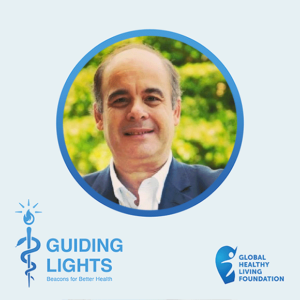
Dr. Carlo Vinicio Caballero, from Barranquilla, Colombia, is an Associate Professor of Medicine and Coordinator of the Rheumatology unit at Universidad del Norte. He is the former Vice President of the Panamerican League of Associations for Rheumatology (PANLAR), as well as the Editor in Chief of Global Rheumatology.
What inspires you to advocate?
“When a patient goes to a doctor [it] is because they have a problem that requires some solutions. And sometimes we manage to solve the problems. And we always try to help the patients to overcome their chronic conditions as best as possible.”
What is one of your proudest moments?
Well, I think, during my presidency at PANLAR some years ago (2016 to 2018), we managed to include patients as part of the organization and we created a group with this goal together. The patient has a voice and it’s different from the voice of the doctors. And sometimes we think that we know what the patient needs. But what you are learning through these kinds of programs [is that] we also can learn from the patients.”
What’s your best advice for patients?
“If a patient goes to a doctor four times a year, for 15 to 20 minutes, that’s one hour, and the other 364 days, 23 hours of their life, they are alone. So if they have more support from … organization[s], it will be very good for them. I think we can work together with patient organizations to help the patient more.”
Dr. Sarah Doaty: “Healing occurs in community”
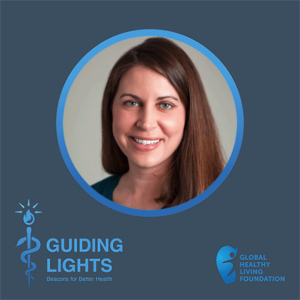
Sarah Doaty, MD, FACP, is a clinical rheumatologist at Virginia Mason Franciscan Health in Seattle, WA, and former Medical Director for the Division of Rheumatology at the Alaska Native Tribal Health Consortium.
What inspires you to advocate?
“I went up to Alaska because I grew up in a rural community and sort of understand some of the challenges that come with accessing health care when you live outside of a city. I just really fell in love with the communities up there. Rural communities have their own challenges and also their own opportunities. And it’s been great to be able to care for people from a spectrum of backgrounds, cultures, ethnicities, and provide rheumatologic care.”
What is one of your proudest provider moments?
“When I think about the work that I’ve been doing over the past six years, the proud moments for me have actually been in those small moments rather than one big moment. It’s, you know, when we get a patient with rheumatoid arthritis on treatment, and their quality of life improves, they’re able to do the activities that they want to do, they’re able to spend time with friends and family, and just enjoy life.”
What advice do you have for patients?
“Healing occurs in community. And I think that’s the message that I want to get out to folks here in the U.S. and around the world. Creating community — whether that’s joining communities through CreakyJoints and learning from other patients who are having similar struggles or finding or creating community wherever it is that you live — is really the pathway to healing.
Partnerships with doctors are really important and it’s incredible the treatments that we have these days to be able to get people into low disease activity or remission. But I think to really heal on a physical, mental, and spiritual level, you really require that community. I think CreakyJoints does a great job of providing that.”
Part of a Larger Puzzle
Each person has a unique story, and we like to think of each story as a piece of a larger puzzle. When we share our story, we are adding to the global puzzle containing common themes people both near and far can resonate with and learn from. Together, we are much more powerful than we would be in our separate corners. From time to time, when things get tough, look around. Like lighthouses in the night, beacons for hope can be found worldwide.
The Guiding Lights: Beacons for Better Health program was made possible with support from Horizon Therapeutics.
Was this article helpful?
YesNo

